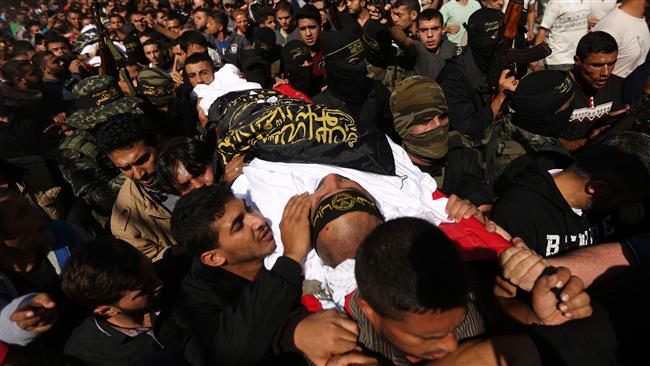
RNA - Major General Yoav Mordechai, the head of an Israeli ministry unit responsible for activities in the Palestinian lands, said in an Arabic-language video published on late Saturday that Israel “destroyed a … tunnel” on October 30, which resulted in the death of fourteen fighters from al-Quds Brigades, which is the military wing of the Islamic Jihad movement, and the Ezzedeen al-Qassam Brigades, the military wing of the Hamas resistance movement.
“We’re aware of the plot that Palestinian Islamic Jihad is concocting against Israel. They are playing with fire at the expense of residents of the Gaza Strip, Palestinian reconciliation efforts and the stability of the entire region,” Mordechai alleged.
He added, “Just to be clear, Israel will respond forcefully and resolutely to any Islamic Jihad reaction whatsoever — not just against Jihad, but also against Hamas.”
The senior Israeli military official also addressed the Damascus-based Islamic Jihad leadership, calling on Ramadan Shalah and Ziad Nakhaleh to “take control over the situation,” as they are the ones “who will be held accountable” for any attack.
The Israeli military says it is withholding the bodies of five Palestinian resistance fighters killed in the demolition of the tunnel.
“We are indeed in possession of those bodies … All were killed or died inside Israeli territory, not in the Gaza Strip,” Israel’s military spokesman Jonathan Conricus told AFP on November 5.
Israeli media outlets say the Gaza resistance fighters’ bodies would most likely be retained as bargaining chips to retrieve the remains of two Israeli soldiers killed in the 2014 Gaza war.
Israeli officials claim that three settlers, who are all said to be mentally unstable, are also believed to have entered the Gaza Strip, and are being held by Hamas.
Tunnels are the only lifeline for Palestinians living under the Israeli siege and Egypt has so far destroyed hundreds of them.
Israel and the Egyptian military have launched a campaign to destroy the tunnels, preventing the people in Gaza from bringing most of their basic goods like construction materials, food, and fuel into the coastal enclave.
The Gaza Strip has been under an Israeli siege since June 2007. The blockade has caused a decline in the standards of living as well as unprecedented levels of unemployment and unrelenting poverty.
The Israeli regime denies about 1.8 million people in Gaza their basic rights, such as freedom of movement, jobs with proper wages as well as adequate healthcare and education.
847/940